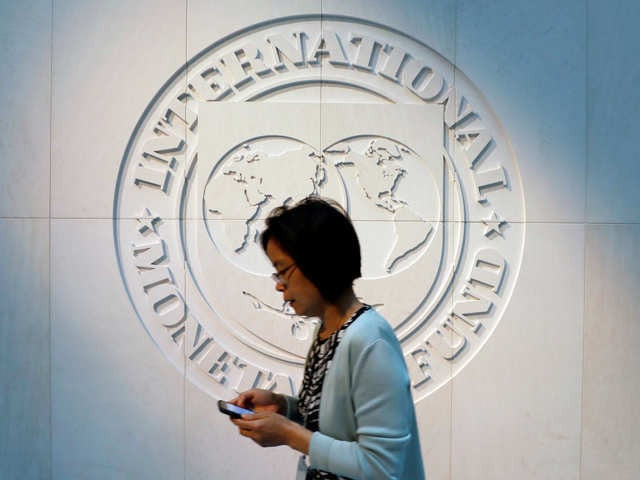Russia doing better than expected despite sanctions: IMF
Russia's "domestic demand is also showing some resilience" due to government support

Despite damaging Western sanctions imposed on Moscow in the wake of the invasion of Ukraine, Russia's economy appears to be weathering the storm better than expected as it benefits from high energy prices, the IMF said Tuesday.
The sanctions were meant to sever Russia from the global financial system and choke off funds available to Moscow to finance the war.
But the International Monetary Fund's latest World Economic Outlook upgraded Russia's GDP estimate for this year by a remarkable 2.5 percentage points, although its economy is still expected to contract by six percent.
"That's still a fairly sizable recession in Russia in 2022," IMF chief economist Pierre-Olivier Gourinchas told AFP in an interview.
A key reason that the downturn was not as bad as expected was that "the Russian central bank and the Russian policymakers have been able to stave off a banking panic or financial meltdown when the sanctions were first imposed," he said.
Meanwhile, rising energy prices are "providing an enormous amount of revenues to the Russian economy."
After starting the year below $80 a barrel, oil prices spiked to nearly $129 in March before easing back to under $105 on Tuesday for Brent, the key European benchmark, while natural gas prices are rising again and approaching their recent peak.
While major economies including the United States and China are slowing, the report said, "Russia's economy is estimated to have contracted during the second quarter by less than previously projected, with crude oil and non-energy exports holding up better than expected."
Meanwhile, despite the sanctions, Russia's "domestic demand is also showing some resilience" due to government support.
But Gourinchas said "there is no rebound" ahead for Russia. "In fact," the IMF is "revising down the Russian growth in 2023," 1.2 points lower than the April forecast for a contraction of 3.5 percent.
The penalties already in place, as well as new ones announced by Europe, mean "the cumulative effect of the sanctions is also growing over time," he said.
The report indicates Europe is facing the brunt of the fallout from sanctions given its reliance on Russia for energy. The situation could worsen dramatically if Moscow cuts off gas exports, and once the European Union imposes a ban on Russian oil delivered by sea starting next year.



1726734110-0/BeFunky-collage-(10)1726734110-0-208x130.webp)















COMMENTS
Comments are moderated and generally will be posted if they are on-topic and not abusive.
For more information, please see our Comments FAQ